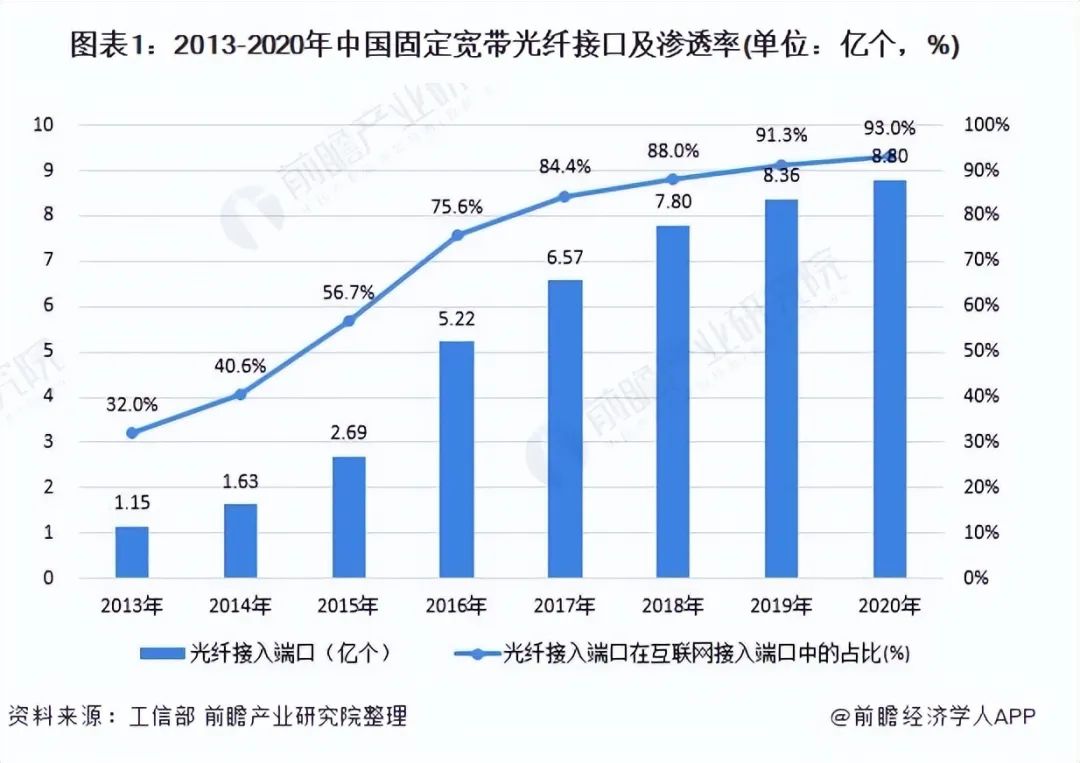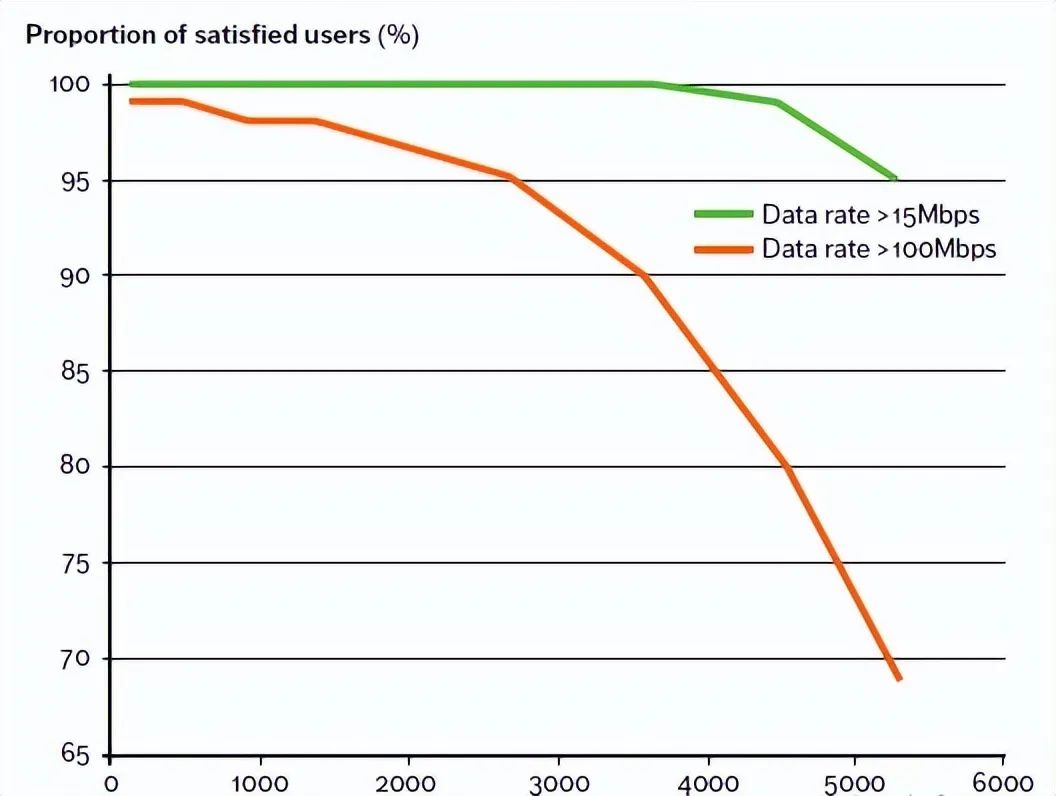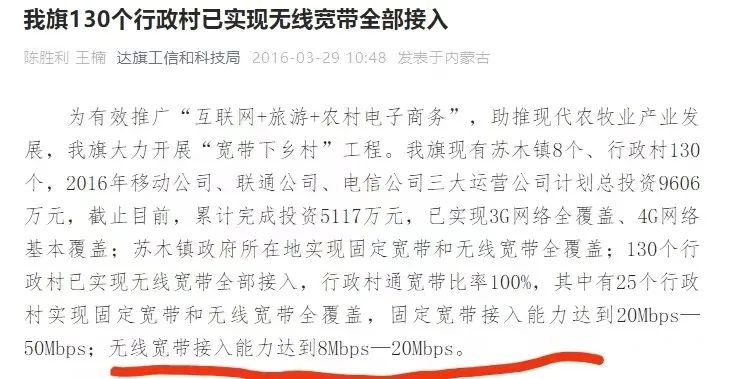Home broadband can also be accessed wirelessly, what are the benefits of this for IoT

Home broadband can also be accessed wirelessly, what are the benefits of this for IoT

People are waiting for a cheaper broadband
Working hard alone in a big city, watching your peers in your circle of friends sharing their happy lives, do you feel lonely? I don’t know what you think about being strong, but Xiao Ming really felt lonely—when his mobile phone couldn’t load the photos posted by his friends in the rental house in the village in the city.
I couldn't help asking him, since the operator's wireless network is poor, why not use wired broadband? He said to me who seemed to have never experienced the sufferings of the world: "If I can afford broadband, do I still need to live in a village in the city? Besides, I don't even know when my house will be rented, and I have to pay for cable broadband every year. It’s not worth it for me who is budget-conscious (stingy).”
This is a true portrayal of migrant workers in countless big cities. In fact, due to market competition, the current price of wired broadband has dropped significantly compared to before. Those who are still unwilling to access wired broadband are all users who are extremely price-sensitive, and the possibility of using fixed broadband in the future is relatively small. According to the data from the Ministry of Industry and Information Technology, my country's fixed broadband access ports began to slow down sharply after 2017, and the fixed broadband market has become saturated.

For those users who have not yet connected to fixed broadband, they are actually willing to sacrifice part of the speed and quality of broadband Internet access in exchange for lower broadband fees. The Broadband Wireless Access (FWA for short) may just meet their needs.
What is Broadband Wireless Access (FWA)
FWA refers to the use of wireless technology to achieve fixed broadband access in the home. The access process is shown in the figure below. It is to put a wireless router (called CPE in the communication industry, Customer Premises Equipment, customer terminal equipment) at home. It can directly connect to the wireless base station through the wireless network, and then access the Internet.
As a low-cost, easy-to-deploy flexible broadband solution, FWA has always played an important role in the broadband industry. Except for the Chinese market, the number of new users of 4G FWA exceeded that of wired broadband in 2019; the number of wireless broadband connections exceeded that of wired broadband in 12 countries. With the development of 5G, more and more operators around the world have launched 5G FWA services, making it the most important service for many operators besides wired broadband.
Why are foreign operators so keen on FWA?
First, FWA has always been an ideal choice for rapid broadband deployment in many countries and regions because it does not need to obtain the right of way, dig trenches to bury cables, or drill holes through walls. At the same time, with the maturity of 4G and the arrival of 5G, today's 4G/5G FWA can achieve Gbps downlink bandwidth and provide a fiber-like experience. Therefore, it is favored by operators and users and has become a sharp tool for mobile operators to expand the home broadband market.
Second, the current 5G user penetration rate is low, and there are not many landing scenarios. Most 5G operators have a light network business load, and it is difficult to quickly realize the investment. At this time, the development of home users and the use of idle networks can increase new income. .
Now might be the best time to promote FWA
From a technical point of view, when a technology is easy to use and affordable, it is the best time for it to expand the market. Previously, broadband wireless access of 3G and 4G was not popular, to a large extent because its capacity was very limited and it was impossible to achieve economies of scale. 5G offers 10 to 100 times the capacity of 4G, so it has the potential to realize FWA solutions on a large scale.
Ericsson engineers once conducted a FWA experiment, and obtained the following data graph in a scenario where the population density is about 5,000 households per square kilometer, and the maximum traffic demand per user per month is 5,200GB. It can be seen that under such a high load condition, the 5G FWA network can meet the data rate of 95% of users greater than 15Mbps, and the rate of 69% of users is greater than 100Mbps.

From the perspective of demand, for domestic users in relatively developed areas, as mentioned at the beginning of the article, the current wired broadband market is close to saturation, and FWA can provide a cheaper broadband access method.
In underdeveloped areas with difficult construction conditions or low population density, FWA can help users use home broadband. For example, in Inner Mongolia, operators provide wireless broadband to achieve full broadband coverage, so that every household can experience a stable Internet speed in the information age, and carry out Internet + work such as e-commerce, which is of great significance to my country's poverty alleviation work.

For foreign users, the demand is even greater, because the coverage and quality of mobile networks in foreign countries are much worse than those in China, and the economic level of many countries is not high. Take Sri Lanka, a tropical island country, as an example. In 2013, the household broadband penetration rate in the country was about 9%, and 80% of Sri Lankans lived in sparsely populated rural areas. The digital divide between different economic classes was particularly prominent. Local operators adopted 4G FWA technology, which increased household broadband penetration to 26% in 2019, helped 800,000 people escape the digital vacuum, and has been widely used in distance education, smart medical care, digital finance and other fields.
What FWA Can Bring to the IoT Industry
First of all, FWA can allow more home users to use broadband, which also provides conditions for these families to enjoy smart home appliances. At the same time, FWA also provides a low-cost connection option for home users who have already installed fixed broadband, enriching their scenarios of using various online smart services.
Second, compared to smart devices connected to a local area network, devices connected with FWA are more suitable for remote management. For example, single-item products such as smart speakers and sweeping robots have little demand for direct connection to the operator's network, and only need to connect to a local area network. However, there are many IoT devices with security or monitoring management that need to be connected through The operator's network is managed remotely after being connected to the Internet, so FWA that can be done in one step is obviously more advantageous.
In the end, FWA is more secure than LAN. The use of smart home appliances will generate a lot of private information about users, the network password of the LAN is easy to be cracked, and the security level of the cellular network will be higher.
write at the end
Connecting every corner of the world (and making everyone pay for Internet connectivity) has been a dream shared by the tech giants for years. According to the report of the World Bank, popularization of broadband can eliminate the digital divide and effectively improve the economic level of developing and underdeveloped countries. A 10 percent increase in broadband penetration would increase average GDP by about 1.3 percent. In areas with developed networks, higher-quality broadband experience and more diversified broadband options can promote more IoT usage scenarios and effectively promote the development of the digital economy. As a low-cost, easy-to-deploy broadband, FWA will naturally play an increasingly important role.